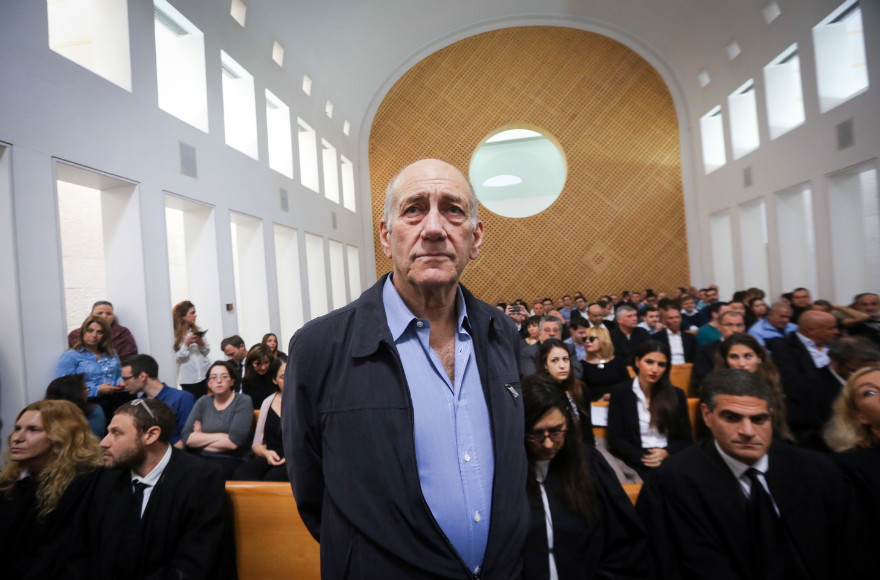JERUSALEM (JTA) — Ehud Olmert entered an Israeli prison to begin his 19-month sentence on a corruption conviction, becoming the first Israeli prime minister to serve jail time.
Prior to arriving at the prison in central Israel on Sunday morning, Olmert released a video statement in which the former leader proclaimed his innocence.
“As prime minister, I was entrusted with the supreme responsibility of protecting the citizens of Israel, and today it is I who is about to be closed behind bars,” Olmert said.
“It’s important to me at this point to say again, as I have said in the court and outside of it, that I reject outright the charges related to bribery. It is also important to emphasize that none of the charges of which I was convicted was related to my activity during the period in which I served as prime minister.”
During his service as prime minister, Olmert said, “I also made mistakes, even though in my opinion they were not of a criminal nature. Today I am paying a high price for some of them, perhaps too high. I accept the sentence with a very heavy heart, but no one stands above the law.”
He suggested, however, that perhaps “the legal snowball of my affairs went on and grew for a variety of additional reasons that were not just legal.”
In December, Israel’s Supreme Court cut Olmert’s prison term in the Holyland corruption case to 18 months from six years after acquitting him of receiving the larger of the two bribes for which he was convicted. Last week, the Jerusalem District court extended the sentence by a month.
The Holyland affair, what is being called the largest corruption scandal in Israel, involved the payment of bribes to government officials by the developers of a luxury high-rise apartment complex in Jerusalem.
Olmert resigned as prime minister in September 2008 after police investigators recommended that he be indicted in multiple corruption scandals.
In May, Olmert was sentenced to eight months in prison after being convicted for accepting cash-filled envelopes from an American-Jewish businessman, Morris Talansky, and using it for personal and not political expenses. The case is under appeal to the Supreme Court.
JTA has documented Jewish history in real-time for over a century. Keep our journalism strong by joining us in supporting independent, award-winning reporting.






